Filter by
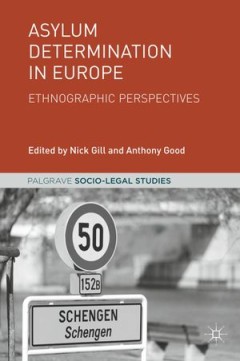
Asylum Determination in Europe
Drawing on new research material from ten European countries, Asylum Determination in Europe: Ethnographic Perspectives brings together a range of detailed accounts of the legal and bureaucratic processes by which asylum claims are decided.The book includes a legal overview of European asylum determination procedures, followed by sections on the diverse actors involved, the means by which they …
- Edition
- -
- ISBN/ISSN
- -
- Collation
- -
- Series Title
- -
- Call Number
- 360 ASY a
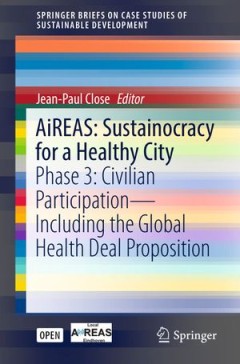
AiREAS: Sustainocracy for a Healthy City: Phase 3: Civilian Participation –…
Development Economics, Atmospheric Protection / Air Quality Control / Air Pollution, Urban Studies/Sociology, Social Choice/Welfare Economics/Public Choice, Group Theory and Generalizations, Data Mining and Knowledge Discovery
- Edition
- -
- ISBN/ISSN
- 9783319456195
- Collation
- -
- Series Title
- -
- Call Number
- 360 CLO a
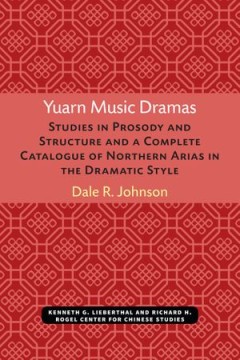
Yuarn Music Dramas: Studies in Prosody and Structure and a Complete Catalogue…
Part One of Yuarn Music Dramas presents a detailed analysis of form and structure in Yuarn music drama, with sections on the act, the suite, the aria, the verse, metrics of repeated graph patterns, parallelism, and the matching of suite and mode. Part Two presents the first catalogue of arias of its kind to be published in a language other than Chinese. It is a compilation of all of the arias i…
- Edition
- -
- ISBN/ISSN
- 9780472901470
- Collation
- -
- Series Title
- -
- Call Number
- 782 JOH y
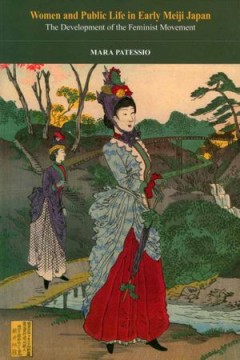
Women and Public Life in Early Meiji Japan: The Development of the Feminist M…
Women and Public Life in Early Meiji Japan focuses on women’s activities in the new public spaces of Meiji Japan. With chapters on public, private, and missionary schools for girls, their students, and teachers, on social and political groups women created, on female employment, and on women’s participation in print media, this book offers a new perspective on nineteenth- and early twentiet…
- Edition
- -
- ISBN/ISSN
- 9780472901609
- Collation
- -
- Series Title
- -
- Call Number
- 305.4 PAT w

The Wild Goose
Mori Ogai (1862–1922), one of the giants of modern Japanese literature, wrote The Wild Goose at the turn of the century. Set in the early 1880s, it was, for contemporary readers, a nostalgic return to a time when the nation was embarking on an era of dramatic change. Ogai’s narrator is a middle-aged man reminiscing about an unconsummated affair, dating to his student days, between his class…
- Edition
- -
- ISBN/ISSN
- 9780472901418
- Collation
- -
- Series Title
- -
- Call Number
- 808.9 OGA w
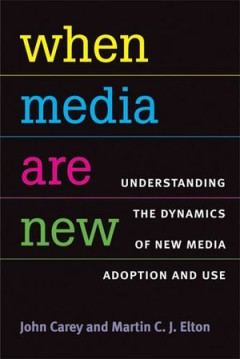
When Media Are New: Understanding the Dynamics of New Media Adoption and Use
The world of communication media has undergone massive changes since the mid-1980s. Along with the extraordinary progress in technological capability, it has experienced stunning decreases in costs; a revolutionary opening up of markets (a phenomenon exemplified by but not limited to the rise of the Internet); the advent of new business models; and a striking acceleration in the rate of change.…
- Edition
- -
- ISBN/ISSN
- 9780472900411
- Collation
- -
- Series Title
- -
- Call Number
- 302.231 CAR w
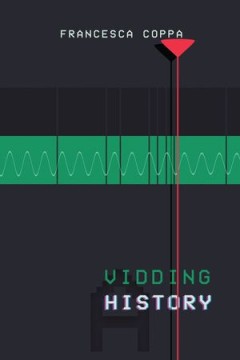
Vidding: A History
Vidding is a well-established remix practice where fans edit an existing film, music video, TV show, or other performance and set it to music of their choosing. Vids emerged forty years ago as a complicated technological feat involving capturing footage from TV with a VCR and syncing with music—and their makers and consumers were almost exclusively women, many of them queer women. The technol…
- Edition
- -
- ISBN/ISSN
- 9780472902590
- Collation
- -
- Series Title
- -
- Call Number
- 302.231 COP f

The Unreal Estate Guide to Detroit
Intense attention has been paid to Detroit as a site of urban crisis. This crisis, however, has not only yielded the massive devaluation of real estate that has so often been noted; it has also yielded an explosive production of seemingly valueless urban property that has facilitated the imagination and practice of alternative urbanisms. The first sustained study of Detroit’s alternative urba…
- Edition
- -
- ISBN/ISSN
- 9780472900282
- Collation
- -
- Series Title
- -
- Call Number
- 720 HER u
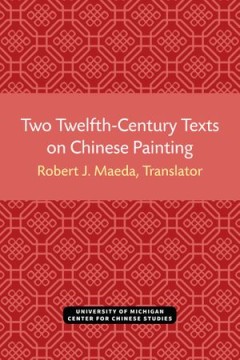
Two Twelfth-Century Texts on Chinese Painting
Two Twelfth-Century Texts on Chinese Painting presents two texts in translation that provide dual insight into the Painting Academy of Emperor Hui-tsung and the literati school of painting.The Shan-shui ch’un-ch’uan chi is a treatise for beginning landscape painters dated to the Hsüan-ho era. The treatise was written by Han Cho, a reputed member of the Academy, but the text was not specifi…
- Edition
- -
- ISBN/ISSN
- 9780472901548
- Collation
- -
- Series Title
- -
- Call Number
- 750 MAE t
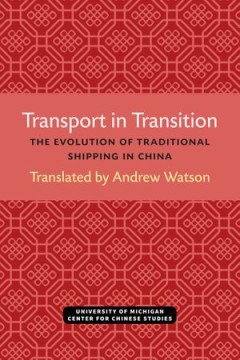
Transport in Transition: The Evolution of Traditional Shipping in China
Water transport is a major feature of the traditional Chinese economy because of its magnitude and comparative efficiency. Yet this feature has all too often been ignored by scholars, with the notable exception of Japanese scholars. We cannot hope to gain any real conception of how the Chinese economy worked in the past, or works now, until we have a clearer picture of the circulation of men an…
- Edition
- -
- ISBN/ISSN
- 9780472901562
- Collation
- -
- Series Title
- -
- Call Number
- 380 WAT t
 Computer Science, Information & General Works
Computer Science, Information & General Works  Philosophy & Psychology
Philosophy & Psychology  Religion
Religion  Social Sciences
Social Sciences  Language
Language  Pure Science
Pure Science  Applied Sciences
Applied Sciences  Art & Recreation
Art & Recreation  Literature
Literature  History & Geography
History & Geography